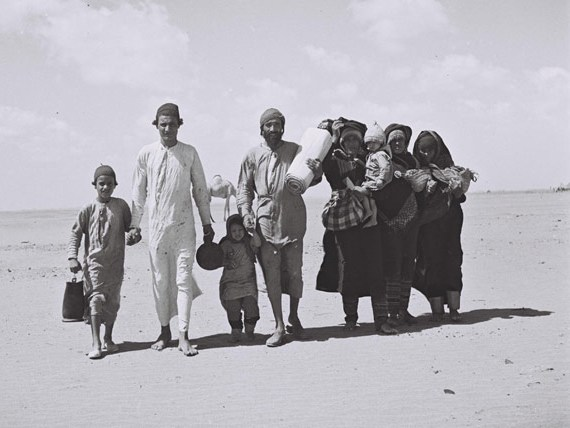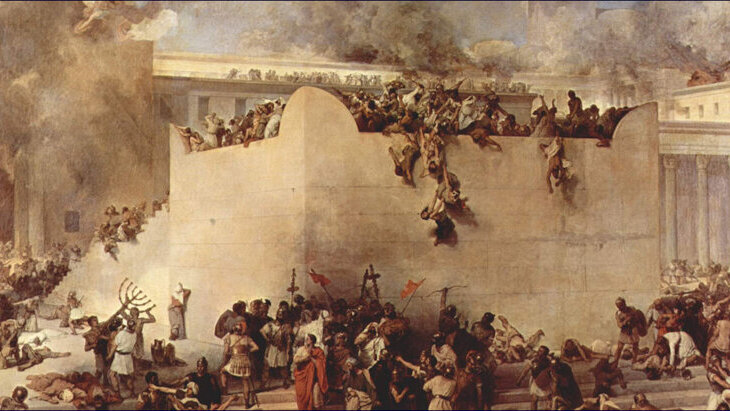REPORT: Is Israel a Settler Colony?
What is settler colonialism?
There is no clear definition of settler colonialism, but the concept generally refers to a colonial movement by an empire-aspiring country with the intention of replacing or eradicating indigenous populations. While colonialism relies, to an extent, on the continued presence of indigenous peoples to be exploited by an imperial power, settler colonialism is premised upon their replacement.
So is Israel a settler colonial project?
No. Despite the voices criticizing the Israeli state as a “settler colony” displacing the native or indigenous Palestinians, such a characterization is both false and deeply antisemitic. Not only does it ignore the millennia-long connection of the Jewish people to their homeland, it erases the reality of modern Israel as an integrated and multicultural society.
Most early Jewish settlers of the Zionist movement in the 19th and 20th Centuries were refugees from racial and religious persecution. They were not representing a European country seeking to establish a colony, but a people who were returning to their ancestral homeland in order to escape the acceleration of antisemitic policies and racial violence in the Diaspora.
Where did these early Jewish settlers come from?
The First Aliyah, lasting from roughly 1881-1903, saw a new wave of Jewish immigration to the Land of Israel, then part of the Ottoman Empire. One of the key groups in this initial movement were the Eastern European Jews fleeing antisemitic pogroms in the Russian Empire. A large number of Yemeni Jews also emigrated to Israel during this period.
This heavily Eastern European demographic of early Jewish immigration stayed constant in successive Aliyahs. By the time of the Fifth Aliyah (1929-39), however, more Jews were also arriving in Israel from Central Europe to escape the rise of Hitler and Nazism.
Source: Stroum Center for Jewish Studies, University of Washington
What about Jews who never left the Middle East and North Africa?
From the 1940s onwards, Israel experienced another significant influx of Jewish immigration from Middle Eastern and North African countries, including but not limited to Libya, Iraq, Egypt, Yemen, Lebanon and Syria. Following a series of expulsions and an onslaught of antisemitic violence against some of the world’s most ancient Jewish communities, some 900,000 Jews sought refuge in Israel. As of 2020, it was predicted none of these aforementioned countries have a Jewish population exceeding a hundred. Some estimates suggest Egypt has as few as 3 permanent Jewish residents today; Yemen only 1; while Libya has no record of any remaining Jews.
Source: Israeli Missions Around the World
Jewish connection to Eretz Yisra’el
The Jewish faith and culture is inextricably tied to the land of Israel, called Eretz Yisra’el by the Jewish people since Biblical times. The term ‘Jew’ actually comes from the Biblical Hebrew ‘Yehudi’ which refers to the ancient Kingdom of Judah.
Jews have been native to the region of Israel for nearly four millennia – thousands of years prior to its Arab conquest by the Rashidun Caliphate in the 7th Century CE. Holidays, dietary laws, and the Hebrew language all have their roots centered around the ancient Levantine homeland of the Jews.
To say that Israel is a settler colony displacing native inhabitants is false when historical evidence demonstrates the longstanding connection between the Jewish people and Israel. In stark contrast to examples of settler colonialism in the United States, Australia, and South Africa, Jews are indigenous to the Land of Israel.
Exile and Diaspora
Why were the Jews scattered around the world for so long?
In 70 CE, the Roman Empire completed a centuries-long campaign to conquer the Jewish kingdoms, destroying Jerusalem and the Jewish temple. In the wake of this conquest, the indigenous Jewish population were deported and sold into slavery across the Roman Empire. Iudaea (Judea) was renamed Palaestina, derived from the Greek Philistia – the name given to the southern coastal land of the Philistines, sworn enemies of the Israelites. Many argue this was a deliberate attempt to further sever the connection of exiled Jews and their ancient homeland.
This diaspora, or dispersed Jewish population, were deliberately and painfully cut off from their homeland and lived in exile for millenia, facing brutal violence and persecution in Iberia, Central Europe, and the Middle East. Even as these populations were pushed away from their native land, their religion and culture still held onto its vital connection to Eretz Yisra’el.
Source: Aish.com – Destruction of the Second Temple by the Romans
The Zionist Movement as a Return of a People
After thousands of years of persecution in foreign lands, a movement appeared amongst Jewish intellectual spheres. Zionism advocated for a return to their native home in order to reestablish a Jewish state where the Jewish people could live - as Jews - without fear of antisemitism.
The 1917 Balfour Declaration saw the British government endorse ‘the establishment in Palestine of a national home for the Jewish people’. In 1947, the United Nations voted to adopt Resolution 181, scheduling the British Mandate in Palestine to end in May 1948, and establishing the State of Israel. Since then, the country has fought for survival against hostile neighbors who have sought to permanently eliminate Jewish presence from the Levant.
To call Israel a settler colony is to ignore one of the greatest success stories of anti-colonialism in history: two thousand years after being forced out of their home by the Roman Empire, the Jewish people returned to reestablish the connection between their people and their native land.
Survivors of the Buchenwald concentration camp arrive in Haifa in 1945, 12 years before Lili Naveh would arrive there with her mother, also a Holocaust survivor.
What is the make-up of Israeli society today?
According to the Israel Central Bureau of Statistics in 2023, approximately 73% of Israeli citizens are Jewish, a further 21% are Arab citizens of Israel (including Druze, Bedouin, and some Christian communities), and the remaining 6% are from other minority backgrounds.
The Jewish population of Israel is frequently divided into two groups: the Ashkenazim and the Mizrahim. Ashkenazi typically refers to Jews who descend from members of the diaspora in Eastern and Western Europe, the United States, and Oceania. Meanwhile, Mizrahi Jews are descended from diaspora Jewish communities in North Africa and the Middle East (e.g. Yemeni, Iraqi, Syrian, Lebanese, and Egyptian Jews). There is also the Sephardi community whose heritage is specific to the Jewish diaspora in Southern Europe (especially the Iberian Peninsula).
A 2018 study by Tel Aviv University estimated that the Mizrahim made up 44.9% of Jewish Israeli citizens; approximately 31.8% identified as Ashkenazi; and 7.9% were of mixed heritage. Furthermore, 3% of survey respondents were Ethiopian Jews; 12.4% were Soviet Jews.
Throughout two millennia of exile, Mizrahi Jews have not left the Middle East and North Africa. Given, therefore, that more than a fifth of Israeli society is Arab, and the largest demographic of Jewish Israelis are an ancestral group who have never left the Middle East and North Africa, any narrative that positions Israelis as exclusively ‘white’ or ‘European’ is entirely false.
Sources and further reading:
Bemporad, Elissa, Legacy of Blood: Jews, Pogroms, and Ritual Murder in the Lands of the Soviets (Oxford: Oxford University Press, 2019)
Caplan, Neil, ‘Zionism and the Arabs: Another look at the ‘New’ Historiography’, Journal of Contemporary History, 36:2. 345-360 (April 2001) https://www.jstor.org/stable/261230.
Dowty, Alan, ‘Is Israel a Settler Colonial State?’ Stroum Center for Jewish Studies (University of Washington, 2022) https://jewishstudies.washington.edu/israel-hebrew/why-israel-isnt-a-settler-colonial-state/
Friling, Tuvia, ‘What Do Those Who Claim Zionism is Colonialism Overlook?’ Handbook of Israel: Major Debates (De Gruyter, 2006) pp. 848-872.
Klier, John D., Russians, Jews, and the Pogroms of 1881-1882 (Cambridge: Cambridge University Press, 2011)
Lewin-Epstein, Noah, and Yinon Cohen, ‘Ethnic Origin and Identity in the Jewish Population of Israel’, Journal of Ethnic and Migration Studies, 45:11. 2118-2137. (Routledge, 2018) p. 2126. https://people.socsci.tau.ac.il/mu/noah/files/2018/07/Ethnic-origin-and-identity-in-Israel-JEMS-2018.pdf
Morris, Benny, The Making of Israel (University of Michigan Press, 2007)
Schulewitz, Malka Hillel, The Forgotten Millions: The Modern Jewish Exodus from Arab Lands (New York: Continuum, 2000)
Sternberg, Yitzhak, ‘The Colonialism/Colonization Perspective on Zionism/Israel’ in Handbook of Israel: Major Debates (De Gruyter, 2006) pp. 823-847.




